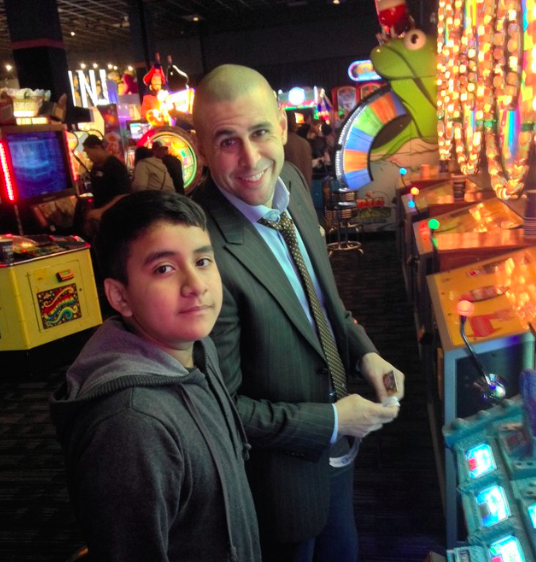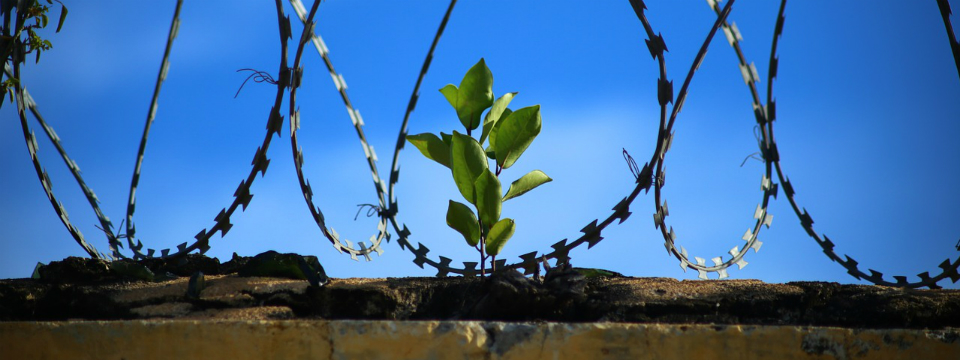On Being Our Brother’s Keeper
Podcast: Play in new window | Download
by John Bridgeland, CEO, Civic Enterprises and Melody Barnes, Director, White House Domestic Policy Council
A former gang member and high school dropout, James Mackey is the kind of kid most of us feared and too many ignored. If we paid any attention to James, we thought he would never be a contributing member of society and discarded him in our psychic trash bins. Fifty years after the war on poverty, most of us declared a silent war on James and other young men and women like him.
But lucky for James and his community, Abigail Forrestor wasn’t like the rest of us. James met Abrigal through his job at YouthBuild, and a structured mentoring relationship began. In Abigail, James found someone to look up to, talk with, and support him when no one else would. Now, James is enrolled in school and pursuing his associate’s degree.
What mentoring did for James, it can do for other young people. President Obama announced a new initiative, “My Brother’s Keeper,” focused on helping boys and young men of color reach their full potential through mentoring, college and career readiness and other supports. Embedding mentoring into this and other public and private sector initiatives can have a transformative impact on young people’s lives. Unfortunately one in three young people in the U.S. will reach age 19 without ever having had a mentor; the rates are even higher for at-risk youth. Nationwide, approximately 16 million youth, including 9 million at-risk youth, will grow up without the support and guidance mentoring provides.
When integrated into other initiatives, mentoring can strengthen efforts to reduce poverty, truancy, drug abuse and violence while promoting healthy decision-making, positive behaviors and strong futures. Young adults who had mentors, particularly those at-risk, are more likely to participate in sports or extracurricular activities, hold a leadership position and volunteer in their communities than those without a mentor. These activities translate into higher self-esteem and self-confidence — traits that are necessary for youth to engage in teamwork and ultimately to be successful in life.
According to new findings released by Civic Enterprises with Hart Research in the first ever nationally representative survey on youth perspectives of mentoring, young people themselves confirm the benefits: Eight in 10 young people surveyed said they saw the value of structured mentoring relationships. And there are tangible academic benefits as well: 76 percent of at-risk young adults who had a mentor aspired to enroll in and graduate from college, 20 percentage points higher than those without mentors.
Mentoring produces more engaged citizens and contributes to stronger leaders, better schools and healthier and robust economies and communities. It’s also a cost-effective and proven strategy to address pressing challenges facing America’s young people. In fact, for every dollar invested in quality youth mentoring programs yields a three-dollar return in benefits to society.
The professional mentoring field is working to support young people who may not have a naturally occurring mentor by facilitating structured mentoring relationships. Closing the mentor gap (the number of young people who do not have a mentor) means creating more mentoring relationships, and ensuring each of those relationships is high-quality and effective according to the evidence.
To get it right, MENTOR: The National Mentoring Partnership has identified evidence-based standards of practice for operating quality mentoring programs for the field. These standards focus on six critical dimensions of a mentoring relationship — recruitment, screening, training, matching, support, and closure. In quality mentoring, the relationship results in the positive development of the youth toward a healthy and productive future in which the young person can achieve his or her fullest potential.
Policymakers, philanthropists, corporate and nonprofit leaders, parents and youth must demand quality mentoring programs with well integrated quality assessment and continuous improvement. Federal and state policymakers should adopt these evidence-based standards and private sector leaders should support efforts by nonprofits and schools to adopt them and require these elements be incorporated into their work.
By focusing on the evidence that mentoring is an effective youth development intervention and listening to the voices of young people themselves, we can make high-quality mentoring relationships available to all youth looking for support. We owe our nation’s youth and our communities nothing less.
John Bridgeland and Melody Barnes were former directors of the White House Domestic Policy Council under George W. Bush and Barack Obama, respectively. Both serve on the advisory board of Results for America, an initiative of America Achieves.














